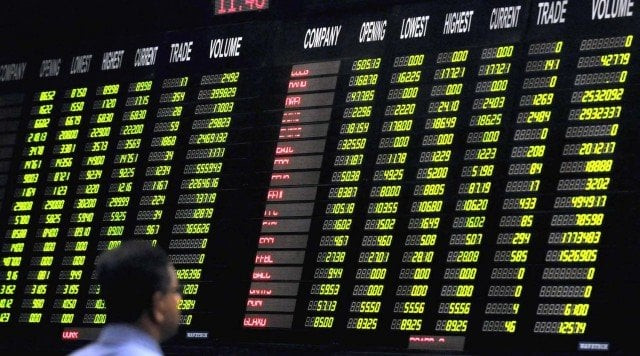How to beat the stock market manipulators
That Pakistan’s stock market is a highly manipulated one is perhaps the most widely held suspicion about the exchange.

How to beat the stock market manipulators
In 2005, Professor Asim Khwaja of Harvard University and Professor Atif Mian of the University of Chicago wrote a paper that comprehensively proved, through empirical analysis of trading data, the existence of manipulative behaviour amongst stock brokers at the Karachi Stock Exchange. From the perspective of the ordinary Pakistani investor, however, one of their most remarkable insights was the fact that the manipulative activity consisted largely of a single strategy known in common parlance as “pump and dump.”
Simply put, this strategy involves brokers trading amongst themselves when volumes are low and spreading positive rumours to begin raising prices to lure ordinary investors into the market. Once enough ordinary investors begin to buy the stocks, brokers sell off their entire holdings, causing prices to take a stumble and leaving the individual investors holding the losses. This strategy has been deemed illegal in many countries and there are laws against manipulative behaviour in Pakistan as well. But the inherent advantage of being a stock broker is rarely nullified.
Indeed, on the Series 7 exam; a licensing exam taken by all investment bankers and stock brokers in the United States, there is mention of what is called the “Odd Lot Theory” of trading which suggests that sophisticated traders should trade against “odd lot” orders, i.e. small orders placed in odd numbers that are likely to be from small investors. The logic behind this is that small investors tend to be bad timers of the market and thus betting against their stance is likely to be profitable.
For an individual investor looking to beat the market, the best strategy involves being somewhat counter-intuitive. It is called “buying at the dips,” which simply means that an investor should buy when everybody else is selling and the market overall is going down. This, more often than not, will feel like utter madness but is the best strategy and has the added advantage of taking away the brokers’ advantage of buying stocks cheap.
Indeed, Warren Buffett, the world’s best known and most successful value investor, has been quoted as saying “be fearful when others are greedy and be greedy when others are fearful.”
Of course, this is easier said than done. It takes a mighty heart to leap into stocks when the market has just tanked by about 70 per cent from its peak, as it did in the latter part of 2008. And yet those who put their money in then have more than doubled their investment.
It is also probably worth noting that, despite all appearances, the stock market is not meant to be a casino or a giant “get-rich-quick” scheme, though many people certainly do treat it that way. The stock market is supposed to offer companies a chance to raise capital and for investors to put their money into enterprises that will grow over time.
The surest way to beat manipulation, more than any other strategy, is to be a long-term investor. Having an investment horizon of 20 to 40 years seems anathema to most Pakistanis but is ultimately the best way to make sure that your money continues to grow. It allows one to take their mind away from the short term fluctuations and focus on the undeniable long term gains.
Published in The Express Tribune, July 12th, 2010.


















COMMENTS
Comments are moderated and generally will be posted if they are on-topic and not abusive.
For more information, please see our Comments FAQ